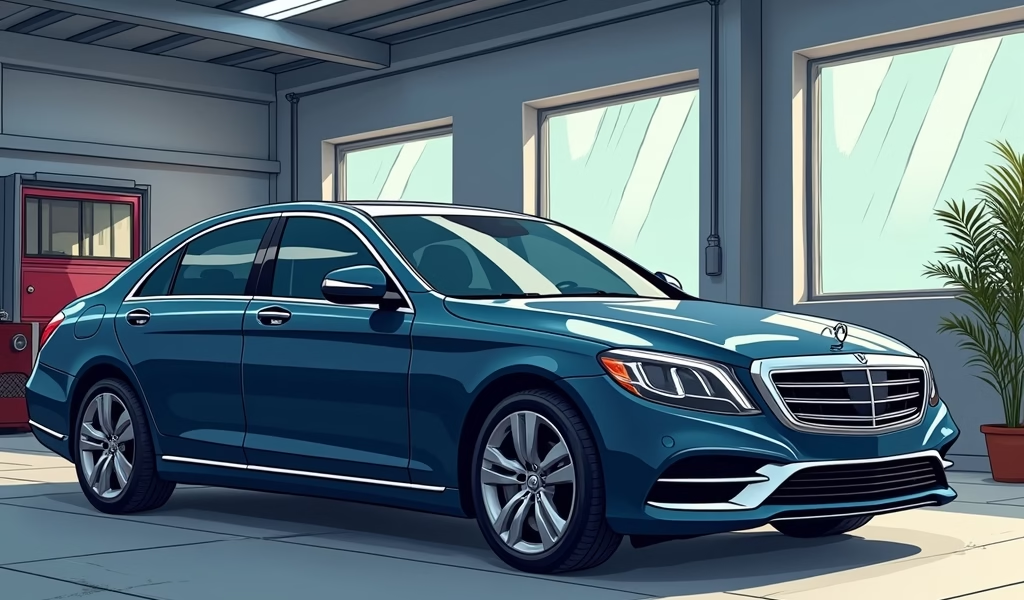Overview
This article provides five essential tips for working effectively with car accident attorneys: find a specialist with experience in auto accidents, gather comprehensive evidence immediately, understand contingency fee structures, establish clear communication channels, and stay actively involved in your case. Implementing these strategies can help accident victims maximize their compensation and ensure a smoother recovery process while avoiding common pitfalls in the legal aftermath of a car wreck.
Table of Contents
- Navigating the Aftermath of a Car Wreck
- Finding a Specialized Car Accident Attorney
- Gathering and Preserving Critical Evidence
- Understanding Attorney Fee Structures
- Establishing Clear Communication Channels
- Being Actively Involved in Your Case
- Conclusion: Your Road to Recovery
- Frequently Asked Questions
Navigating the Aftermath of a Car Wreck
One minute you’re cruising down the highway, and the next—WHAM!—your day takes an unexpected detour. Car wrecks happen in the blink of an eye, leaving you with a banged-up vehicle, possible injuries, and a whole lot of questions. As someone who’s spent decades under the hood and seen the aftermath of countless collisions, I can tell you that knowing how to work with qualified auto crash attorneys is just as important as understanding what’s happening with your vehicle.
According to the National Highway Traffic Safety Administration, over 6 million car accidents occur annually in the US, with roughly 2 million resulting in injuries. That’s a lot of folks suddenly finding themselves needing legal help they never planned for.
Think of attorneys for car wrecks like specialized mechanics for your legal case. Just as you wouldn’t want a plumber fixing your transmission, you need someone with the right tools and expertise to handle your accident claim. These legal pros understand the complex machinery of insurance claims, liability laws, and compensation calculations that can make or break your financial recovery.
In this guide, I’ll walk you through five crucial tips to help you work effectively with attorneys after a car wreck—consider it your maintenance manual for maximizing compensation and getting back on the road to recovery.
Finding a Specialized Car Accident Attorney
When your high-performance vehicle needs work, you don’t take it to just any garage—you find a specialist who knows that specific make and model inside out. The same principle applies when seeking attorneys for car wrecks. Legal representation isn’t one-size-fits-all, and the difference between a general practitioner and a car accident specialist can be thousands of dollars in your settlement.
Car accident law comes with its own set of complexities—from determining fault in multi-vehicle collisions to understanding the long-term implications of seemingly minor injuries. A lawyer who primarily handles divorce cases or real estate transactions simply won’t have the specialized knowledge needed to maximize your compensation.
When interviewing potential attorneys, ask these revealing questions:
- “What percentage of your practice focuses specifically on car accident cases?”
- “Can you share examples of similar accident scenarios you’ve successfully handled?”
- “How do you typically approach negotiations with insurance companies?”
- “Are you prepared to take my case to trial if necessary, or do you prefer to settle?”
Be cautious of attorneys who make guarantees about outcomes or seem more interested in quick settlements than fair compensation. Just like a mechanic promising to fix everything without even looking under the hood, these are red flags that should make you think twice.
Look for a motor vehicle accident lawyer with a proven track record of successful settlements and trials. Check their reviews, ask for references, and trust your gut—you want someone who makes you feel confident they’ll fight for every penny you deserve.

Gathering and Preserving Critical Evidence
Evidence in a car accident case works like diagnostic information for your vehicle—the more comprehensive and accurate it is, the better the outcome. Without proper documentation, you’re essentially asking your attorney to rebuild an engine without knowing what’s broken.
Start collecting evidence immediately after the accident (if you’re physically able). Here’s your evidence checklist:
- Photographs: Capture multiple angles of all vehicle damage, the accident scene, road conditions, traffic signals, and any visible injuries. Don’t be shy—take more pictures than you think necessary.
- Medical Documentation: Keep meticulous records of every medical visit, from the initial emergency room trip to follow-up appointments. These records establish the direct connection between the accident and your injuries.
- Police Reports: This official document contains preliminary fault determinations and an objective description of what happened. Request a copy as soon as it’s available.
- Witness Information: Neutral witnesses provide crucial third-party accounts that can corroborate your version of events. Get names, contact information, and brief statements if possible.
- Digital Evidence: Dashcam footage, surveillance video from nearby businesses, or traffic cameras might have captured the accident. This evidence often disappears quickly, so request preservation immediately.
Also keep a “symptom journal” documenting how your injuries affect your daily life. Note pain levels, activities you can no longer perform, and how your injuries impact your work and personal relationships. This documentation helps quantify the non-economic damages that are often harder to calculate but just as important as medical bills.
Remember, evidence is perishable—skid marks fade, witnesses relocate, and memories blur with time. The sooner you gather and preserve evidence, the stronger your case will be. Your attorney can only work with what you provide, so be thorough and prompt in your collection efforts.
Understanding Attorney Fee Structures
When your car needs repairs, understanding the cost upfront prevents sticker shock later. Similarly, knowing exactly how attorneys for car wrecks charge for their services helps avoid unpleasant surprises down the road.
Most car accident attorneys work on a contingency fee basis, meaning they only get paid if you receive compensation. This arrangement allows access to quality legal representation regardless of your current financial situation—similar to a repair shop that only charges if they actually fix your car.
The standard contingency fee ranges from 25% to 40% of your settlement, with the percentage often increasing if the case proceeds to trial. While this might seem substantial, consider that studies show accident victims with legal representation typically receive settlements 3.5 times larger than those without, even after attorney fees.
Before signing any agreement, ask these clarifying questions:
- “What exact percentage will you take as your fee?”
- “Does your percentage increase if we go to trial?”
- “Who covers case costs like expert witnesses, filing fees, and medical record retrieval?”
- “If we don’t win, will I owe anything for these expenses?”
- “Are there any circumstances where I might owe fees even without a settlement?”
Always get the fee agreement in writing and read the fine print carefully. Some firms charge for “administrative costs” or have sliding scale arrangements that change depending on settlement timing. Understanding these details prevents disagreements when it’s time to distribute your settlement.
Remember, the cheapest option isn’t always the best value—just like with car repairs. An experienced auto wreck lawyer might charge a slightly higher percentage but potentially secure a significantly larger settlement, resulting in more money in your pocket.
Establishing Clear Communication Channels
Clear communication with your attorney works like the diagnostic system in your vehicle—without it, problems can’t be identified and fixed efficiently. Setting expectations from the beginning prevents frustration and ensures everyone stays in their lane.
During your initial consultation, establish your communication preferences:
- How frequently will you receive case updates?
- Who will be your primary contact—the attorney or a paralegal?
- What’s the expected response time for questions or concerns?
- Which communication method works best (email, phone, text, client portal)?
Keep a record of all significant communications for your reference. Many modern law firms use secure client portals or case management software that allows for messaging and document sharing. These tools help maintain organized records of your case progression.
Don’t hesitate to ask for clarification if legal jargon confuses you. A good attorney should explain complex concepts in terms you can understand—just like a good mechanic translates technical issues into plain English. If you’re consistently getting responses that leave you more confused, that’s a warning light on your dashboard.
Remember that communication is bidirectional. Respond promptly to your attorney’s requests for information or documentation. Missing deadlines or withholding relevant details can stall your case like contaminated fuel in your engine.

Being Actively Involved in Your Case
Your legal case isn’t like dropping your car off for service and picking it up when it’s fixed—it requires your active participation throughout the process. Think of yourself as the co-pilot, not just a passenger.
First and foremost, follow all medical treatment recommendations diligently. Just as skipping oil changes damages your engine, gaps in medical treatment can seriously harm your case. Insurance companies look for any opportunity to claim your injuries aren’t as severe as reported, and inconsistent medical care gives them ammunition.
Be completely honest with your attorney about everything—your medical history, the accident details, and your current limitations. Hiding information is like trying to conceal that strange noise your car was making before it broke down; it only makes diagnosis and proper resolution more difficult.
Keep your attorney informed about:
- New symptoms or medical complications
- Any contact from insurance adjusters
- Changes in your ability to work
- How your injuries affect daily activities
- Previous accidents or pre-existing conditions
Take time to understand the settlement process. Ask your attorney to explain the factors that influence your case’s value and the difference between accepting an early offer versus pursuing maximum compensation. According to Insurance Research Council studies, initial settlement offers are typically 30-40% lower than what victims ultimately receive with proper negotiation.
Don’t rush the process. Just as quality repairs take time, building a strong case requires patience. While financial pressures might tempt you to accept a quick settlement, doing so could leave thousands of dollars on the table—especially if you have ongoing medical needs.
Remember, you’re hiring an attorney for their expertise, but nobody knows your situation better than you do. Your input provides the context they need to effectively advocate on your behalf.
Conclusion: Your Road to Recovery
Navigating the aftermath of a car wreck can feel like trying to repair your vehicle without a manual—overwhelming and fraught with potential pitfalls. The five tips we’ve covered—finding a specialized attorney, preserving critical evidence, understanding fee structures, establishing clear communication, and staying actively involved—serve as your roadmap to fair compensation.
Remember that timing matters. Evidence disappears, witnesses move away, and statutes of limitation create firm deadlines for legal action. Taking prompt steps to secure proper representation protects your rights and positions your case for maximum success.
Working effectively with attorneys for car wrecks isn’t just about getting a check—it’s about securing the resources you need for complete recovery. A proper settlement accounts for all your damages: medical expenses, lost income, vehicle repairs, future treatment needs, and the very real pain and suffering you’ve endured.
Just as we advocate for preventative maintenance to keep your vehicle running smoothly, these legal tips help prevent unnecessary complications in your accident claim. While we hope you never need to implement them, having this knowledge ensures you’re prepared for whatever the road brings.
If you’ve recently experienced a car accident, consider implementing these strategies today. The right attorney, armed with proper evidence and working in true partnership with you, can make all the difference in your journey from victim to victor.
Frequently Asked Questions
How soon after a car accident should I contact an attorney?
Contact an attorney as soon as possible after seeking medical attention. Early legal intervention helps preserve evidence and prevents costly mistakes when dealing with insurance companies.
What if I can’t afford to pay an attorney upfront?
Most car accident attorneys work on a contingency fee basis, meaning they only get paid if you win your case. This arrangement allows anyone to access quality legal representation regardless of their financial situation.
How long will my car accident case take to resolve?
Most car accident cases settle within 3-9 months, but complex cases involving severe injuries can take 1-2 years. Your attorney can provide a more specific timeline based on your particular circumstances.
What compensation can I expect from my car accident claim?
Compensation typically covers medical expenses, lost wages, property damage, and pain and suffering. The exact amount depends on injury severity, liability clarity, insurance policy limits, and your attorney’s negotiation skills.
Should I talk to the other driver’s insurance company?
Avoid speaking directly with the other driver’s insurance company without legal representation. Insurance adjusters are trained to minimize payouts and may use your statements against you.


Pingback: attorneys accidents: 5 Key Car Care Tips - knowsyourcar.com
Pingback: Attorney Car Accidents: 5 Essential Tips - knowsyourcar.com